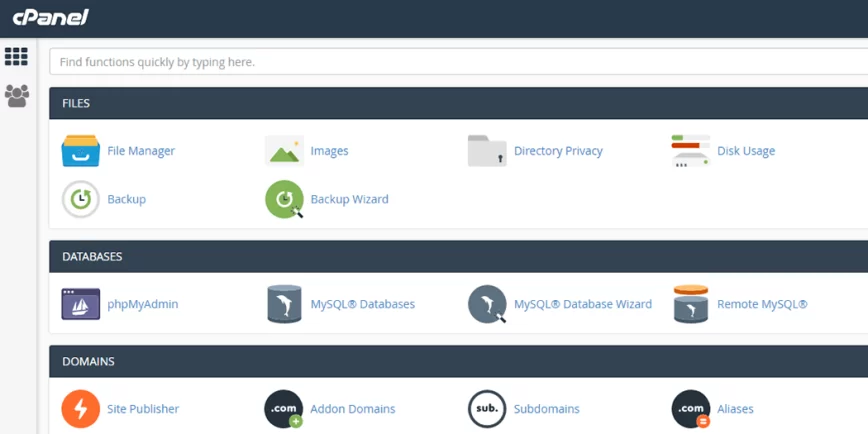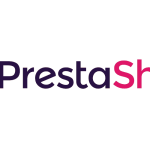Do I Need cPanel for My Website – In today’s digital landscape, managing a website has become an essential task for businesses and individuals alike. Whether you’re a seasoned website owner or just starting out, you may have come across the term “cPanel.” But do you really need cPanel for your website? In this article, we’ll explore the features, benefits, and alternatives of cPanel to help you make an informed decision.
Introduction
Launching and maintaining a website involves various aspects such as domain management, file uploads, email setup, and database configuration. These tasks can be time-consuming and complex, especially for those without technical expertise. This is where a control panel like cPanel can come to your rescue.
What is cPanel?
cPanel is a web-based control panel that simplifies website management tasks. It provides an intuitive graphical interface that allows website owners to perform various functions easily and efficiently. With cPanel, you can manage your website’s files, domains, emails, databases, security settings, and more, all from a single centralized location.
Benefits of cPanel for Website Management
Ease of Use
One of the primary reasons why website owners opt for cPanel is its user-friendly nature. You don’t need advanced technical skills to navigate and operate cPanel. Its intuitive interface makes it easy for beginners to manage their websites effectively.
User-Friendly Interface
cPanel offers a clean and organized interface, making it simple to find the tools and features you need. Its well-structured layout ensures that even complex tasks can be accomplished with a few clicks, saving you time and effort.
Website Customization
cPanel allows you to customize various aspects of your website, such as domain settings, email configurations, and database management. You can easily create email accounts, add subdomains, install content management systems like WordPress, and more, giving you full control over your website’s functionality and appearance.
Features of cPanel
cPanel comes equipped with a wide range of features that empower website owners to manage their online presence efficiently. Let’s explore some of its key features:
File Management
With cPanel’s file manager, you can upload, edit, and organize your website files without the need for FTP software. It provides a convenient way to handle your website’s directories, delete files, change permissions, and create backups.
Domain Management
Managing domains becomes effortless with cPanel. You can add new domains, redirect URLs, create subdomains, and manage DNS settings seamlessly. cPanel also offers tools to help you install SSL certificates for secure browsing.
Email Management
Setting up and managing email accounts associated with your domain is a breeze in cPanel. You can create personalized email addresses, set up email forwarding, enable autoresponders, and configure spam filters to enhance the communication experience for you and your website visitors.
Database Management
If your website relies on databases, cPanel provides tools to manage them efficiently. You can create, modify, and delete databases, set up user access privileges, import and export data, and configure remote database connections effortlessly.
Security Features
cPanel prioritizes website security by offering features like password-protected directories, IP blocking, and SSL/TLS management. It also provides tools to monitor your website’s performance, track resource usage, and detect potential security threats.
Alternative Control Panels
While cPanel is widely popular, it’s not the only control panel available in the market. Depending on your preferences and requirements, you may consider alternatives such as Plesk, DirectAdmin, or even custom control panels provided by specific hosting providers.
Plesk
Plesk is a popular alternative to cPanel, offering similar functionality and ease of use. It provides a user-friendly interface, comprehensive website management tools, and compatibility with multiple operating systems. Plesk also offers extensions and integrations for additional functionalities.
DirectAdmin
DirectAdmin is another control panel that offers a simpler and more lightweight alternative to cPanel. It focuses on essential features and emphasizes performance. DirectAdmin may appeal to those who prefer a minimalistic approach and have a good understanding of server administration.
Custom Control Panels
Some hosting providers develop their own control panels tailored to their infrastructure and services. These custom control panels may offer unique features and integrations specific to the hosting provider’s offerings. Before choosing a hosting provider based on their custom control panel, it’s crucial to evaluate its usability and compatibility with your website’s requirements.
Factors to Consider when Choosing a Control Panel
When deciding whether you need cPanel or an alternative control panel, several factors should be taken into account:
Technical Knowledge
If you’re comfortable with technical aspects and have experience with server administration, you might be able to manage your website without a control panel. However, if you prefer a user-friendly interface and want to save time, using a control panel like cPanel can be highly beneficial.
Scalability
Consider your website’s growth potential. If you anticipate substantial growth or plan to host multiple websites, cPanel’s comprehensive features and scalability may be advantageous. On the other hand, if you have a simple website with minimal requirements, a lighter control panel or even manual management might suffice.
Budget
Control panels like cPanel often come at an additional cost, either bundled with your hosting plan or as a separate subscription. Evaluate your budget and weigh the cost against the benefits provided by the control panel. Some hosting providers offer alternative control panels at lower costs or even for free, which can be a suitable option for budget-conscious website owners.
Hosting Provider Compatibility
Before selecting a control panel, ensure it is compatible with your hosting provider’s infrastructure. While cPanel is widely supported, some providers may offer their own control panels or have limited support for specific alternatives. Verify the compatibility to avoid compatibility issues and ensure smooth website management.
Reasons Why You Might Not Need cPanel
While cPanel offers numerous advantages, it may not be necessary for everyone. Consider the following scenarios where you might not need cPanel:
Technical Expertise
If you possess advanced technical knowledge and are comfortable performing manual website management tasks, using a control panel might feel unnecessary. You can choose to configure your website directly through command-line interfaces or server management tools.
Simplicity and Minimalism
Some website owners prefer a simpler setup and avoid using control panels to keep their websites lightweight. By managing tasks manually, they can have more control over their website’s performance and optimize it according to their specific requirements.
Cost Constraints
If you’re on a tight budget, investing in a control panel like cPanel might not be feasible. In such cases, you can explore alternative control panels that offer similar functionality at lower costs or opt for manual management to avoid additional expenses.
Conclusion
The decision of whether you need cPanel for your website ultimately depends on your specific requirements, technical expertise, and budget. cPanel offers a user-friendly interface, extensive features, and seamless website management capabilities. However, alternative control panels, manual management, or custom control panels may suit certain situations better. Consider your needs, evaluate the available options, and choose the approach that aligns with your goals and resources.
FAQs
Can I use cPanel with any web hosting provider?
Yes, cPanel is compatible with many web hosting providers. However, it’s essential to check with your hosting provider if they offer cPanel as part of their services or have alternative control panels available.
Are there any alternatives to cPanel?
Yes, there are several alternatives to cPanel, including Plesk, DirectAdmin, and custom control panels developed by hosting providers.
How can I learn to use cPanel effectively?
To learn to use cPanel effectively, you can refer to the official cPanel documentation, watch tutorials, or enroll in online courses that provide guidance on using cPanel’s features and functionalities.
Can cPanel help with website security?
Yes, cPanel offers various security features such as password-protected directories, IP blocking, SSL/TLS management, and resource monitoring, which can enhance your website’s security.
Is cPanel suitable for e-commerce websites?
Yes, cPanel is suitable for e-commerce websites as it provides tools for domain management, email setup, database management, and security features that are essential for running an online store.
com Domain Registration | Buy a .com Domain Name Today
Search The Domain Name You Want com Domain Registration – The internet has become an
-
Best Ransomware Detection Techniques
22 May 2023 -
What is Drupal used for?
22 May 2023 -
Is PrestaShop a CMS or Framework?
22 May 2023







